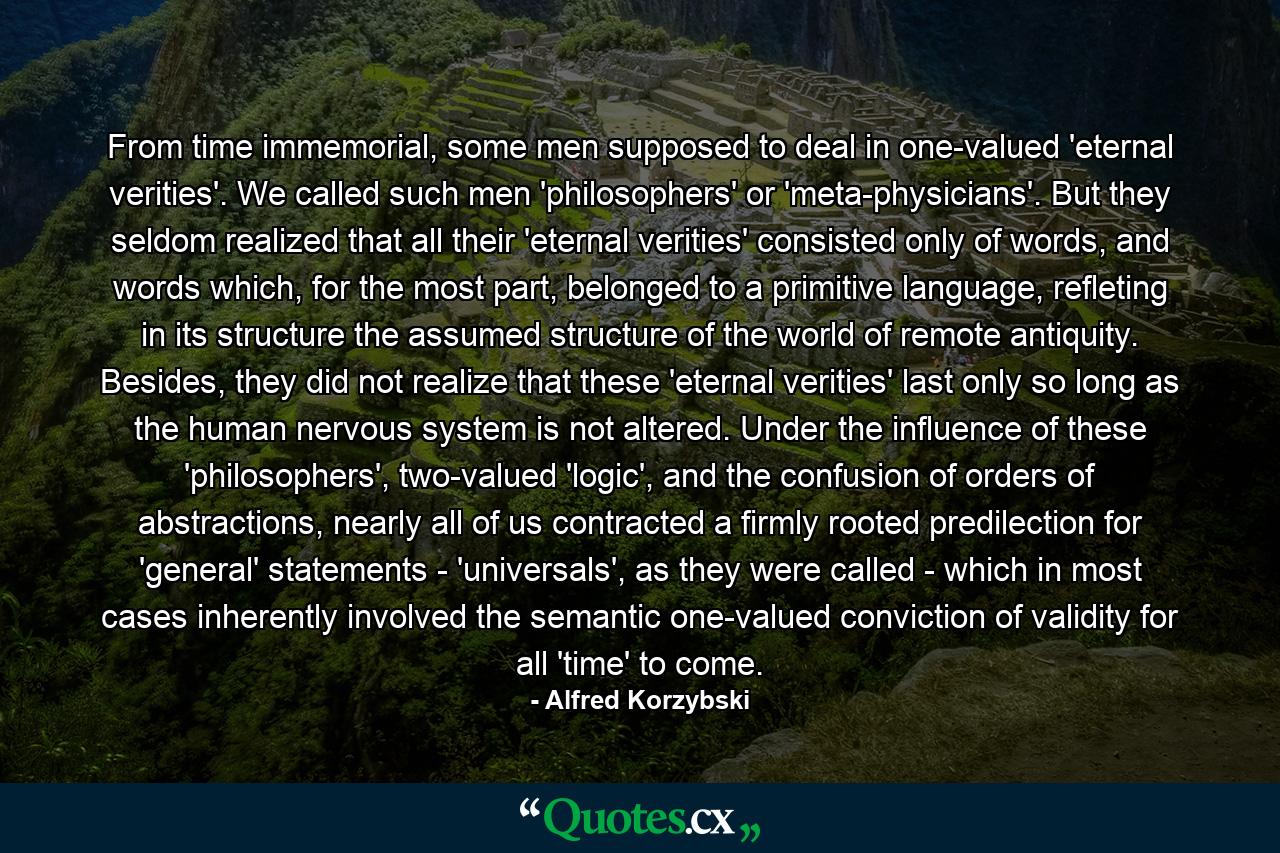From time immemorial, some men supposed to deal in one-valued ‘eternal verities’. We called such men ‘philosophers’ or ‘meta-physicians’. But they seldom realized that all their ‘eternal verities’ consisted only of words, and words which, for the most part, belonged to a primitive language, refleting in its structure the assumed structure of the world of remote antiquity. Besides, they did not realize that these ‘eternal verities’ last only so long as the human nervous system is not altered. Under the influence of these ‘philosophers’, two-valued ‘logic’, and the confusion of orders of abstractions, nearly all of us contracted a firmly rooted predilection for ‘general’ statements – ‘universals’, as they were called – which in most cases inherently involved the semantic one-valued conviction of validity for all ‘time’ to come.
